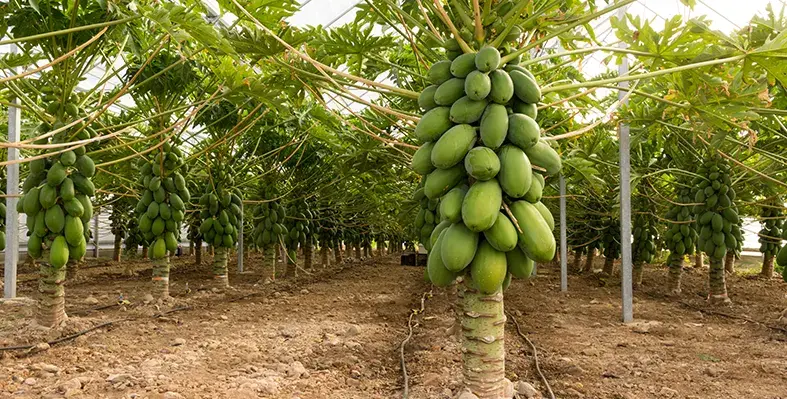Papaya farmers in Kenya are seeing a revival in their harvests, thanks to a tiny parasitic wasp known as Acerophagus papayae
This natural predator is proving to be a game-changer in controlling the papaya mealybug - a destructive pest that has caused widespread damage since it was first detected in the country in 2016.
Papaya is one of Kenya’s most important fruit crops, ranking fourth nationally, and is a vital source of both income and nutrition for rural families. However, the papaya mealybug infestation devastated leaves, stems, and fruits, forcing many farmers to abandon their orchards due to severe crop losses.
In response, scientists from the Centre for Agriculture and Bioscience International (CABI) adopted a biological control approach inspired by successful efforts in Ghana. According to Selpha Miller, an invasive species expert at CABI, “We learned how to produce and distribute the wasps while they are still in their ‘mummy’ stage. That allowed us to produce more and reach about 995 farms so far.”
The wasps are bred in laboratories on potato sprouts. Once matured, the “mummies” are attached to small cards, which are then placed beneath papaya leaves. Upon hatching, the wasps begin to parasitise and reduce the mealybug population without any need for chemical pesticides.
Farmers have welcomed the intervention. One farmer shared, “We were struggling to control the pest because nothing worked at that time... When I heard about biological control using natural enemies, I was excited. It’s good news for us farmers.”
Mary, another farmer who grows papaya alongside citrus and bananas, added, “The mealybugs destroyed about half of what I was supposed to harvest... Since using this biological control, I’m now saving a lot. Buyers come to my farm to buy fruits directly.”
Miller noted, “Unlike pesticides that give instant results, this method takes about six months for the wasps to build up and control the pest population.”
The initiative, supported by organisations like KALRO, KEPHIS, and various county governments, is also expanding into neighbouring countries including Uganda, Tanzania, Rwanda, South Sudan, and Burundi.
This eco-friendly solution is helping Kenyan farmers regain control of their papaya fields, reduce costs, and restore livelihoods naturally and sustainably.





